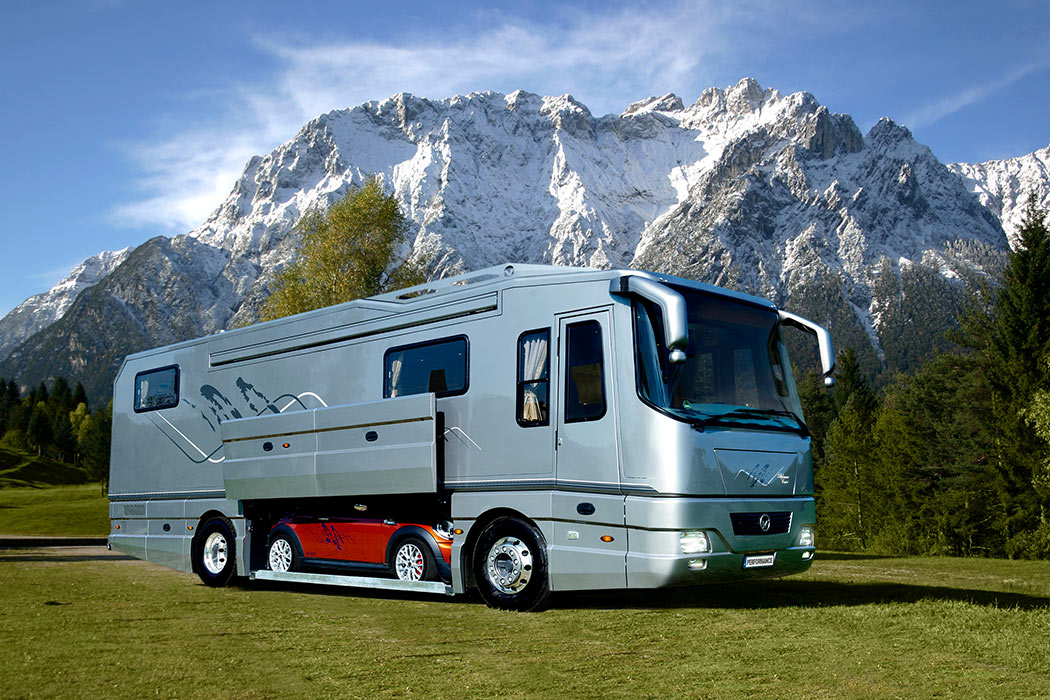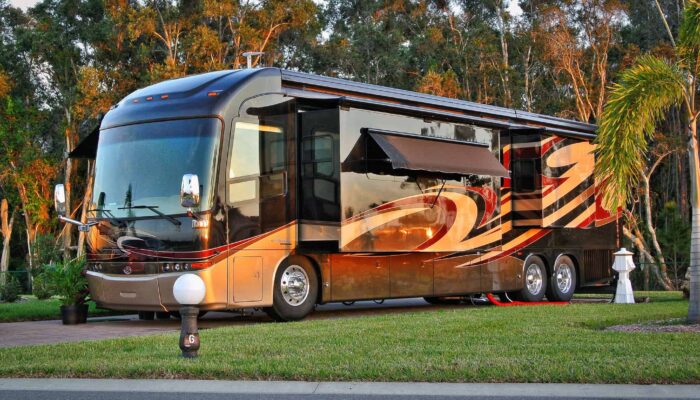Table of Contents
Do Motor Homes Qualify as Mobile Homes and California Homestead
Mobilehomes are protected residences, but if the home has a motor, it may have a different roll.
A recent Arizona case says a “motor home” isn’t a “mobile home” for the homestead exemption. You may ask yourself, “why is a California bankruptcy lawyer writing about a Arizona court ruling on Arizona state law?†And the answer is: because it lets us dive into a discussion of whether a motor home is a mobilehome here under the California homestead exemption.
Here, we’d start with California Code of Civil Procedure (CCP) § 704.710, which defines what a “dwelling†is for the purpose of the California homestead exemption. The CCP says a dwelling “may include but is not limited to the following†and lists seven (7) subsections, each with a different type of asset. The list includes traditional residences such as “house†and “condominium.†It also lists “movable†home types such as “a boat or other waterborne vessel.†Further, § 704.710 includes protections for a “mobilehome†but continues “together with the outbuildings and the land on which they are situated.†And again, note the statute’s language of “is not limited to†is broader than the enumerated list.
So, unlike Arizona, California specifically protects movable vessels like boats. Also unlike Arizona, our homestead exemption specifically protects a “mobilehome†and with land and outbuildings on situated. This could imply that a mobile home in California must be permanent and not movable. However, the specific language used by the California legislature is not “affixed,†but only “situated.†And a movable home can be situated anywhere.
Or, to quote the Talking Heads again:
“Home is where I want to be
But I guess I’m already there.â€
That’s all well and good, but let’s takes a look at how courts interpret what a “dwelling†is under California law.
Sparse case law interpreting Motorhomes and the California Homestead
First, we start with the observation that a protected “dwelling†in California is not the equivalent of a “house.†Olson v. Buttram, (No. C071549, Calif Ct of Appeal, 3rd Appellate Dist. Apr 2, 2014). There, the debtors lived in a motor home located on the property and not in the house on the same property. The appellate court examined whether one or both debtors lived on the property, whether the motor home was a principal dwelling, and a few other factors. However, in response to the accusation that a debtor lived in the motor home and not the house, the court found the distinction moot: “The trial court correctly concluded that a dwelling for purposes of finding a homestead may include a motor home located on the subject property.â€

In the quest for other clues, the Ninth Circuit Court of Appeals stated, “…an automobile, unlike a home, is movable, the automobile exemption nonetheless reflects a concern for preserving a need for basic transportation.†In re Arrol, 170 F. 3d 934, 937, (9th Circuit, 1999). While this may seem relevant, the focus of the Ninth Circuit in Arrol was the extra-territory applicability of the California homestead exemption to a home in another state. The Ninth Circuit here did not consider or address whether the car or motor vehicle could be a home (it has considered whether a motor home or luxury secured debt is good faith in Chapter 13).
Statutory support for a Motor Home being treated as a Mobilehome in Calif.
California Health and Safety Code § 18010 defines a “recreational vehicle†as a “… motor home, travel trailer, truck camper, or camping trailer, with or without motive power, designed for human habitation for recreational, emergency, or other occupancy…It is either self-propelled, truck-mounted, or permanently towable on the highways without a permit.†(emphasis added).
In other words, an RV is a motorhome in California, and whether it’s self-propelled or not, is fit for habitation. California seems to be defining an RV or motor home as something which can be a residence or occupancy. A cynic would counter that no, by definition, a motor home is recreational and therefore can’t be a home. At some point, a California court will clarify the statute.
A parenthetical observation: Governor Newsom recently signed into law two bills (AB1033 and AB976) which allow “accessory dwelling units†(or ADUs) to be sold separately from a main residence as condos. This reflects a trend to expand what a “dwelling†is under California law in an effort to address the current California homeless crisis. This also encouraging partitioning of outhouses from a main residence and potentially limiting the California homestead exemption from applying to ADUs or a duplex, but that’s a different article.
Wrapping it up
So, summing up the sparse law on the topic, it appears there is no binding precedent in California on the issue of whether a “motor home†is a “mobile home†subject to the California homestead exemption. Given that one California appellate court includes analysis that signals a motor home can be exempted by the homestead, the rule would seem to lean in that direction. Also, our state allows exempting a boat or other movable water vessels, so one would think that could extend to vehicles that move on land.
And again, a dwelling is “not limited to†the list of items listed. When you add California’s definition of an RV to be a motor home that can have a motor and be fit for habitation, it may seem the state wants to include motor homes as a residence. Finally, California has a generous wildcard exemption, so this may never even come up here. Then again, there are some expensive motor homes and RVs out there.
The “motor home†versus “mobile home†debate is unsettled here in California. As always when one considers filing a Chapter 7 bankruptcy for a home with a borderline exemption, one should be extremely careful, or …they may be burning down the house.
Even if it’s self-propelled, movable, and on wheels.




